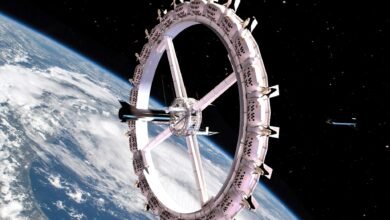
The NGA is working on bringing GPS to the Moon. Credit: OldakQuill / Wikimedia Commons / Public Domain
The US National Geospatial-Intelligence Agency (NGA) is spearheading an ambitious project to bring GPS mapping technology to the Moon, as announced during the GEOINT Symposium 2023. This collaborative effort aims to create a comprehensive lunar reference framework that will assist future lunar explorers in navigation and orientation.
With increasing interest in lunar exploration from both national space agencies and commercial enterprises, the NGA’s lunar GPS system could play a vital role in facilitating safe and accurate positioning on the Moon’s surface.
Building on its expertise in providing geospatial intelligence, the NGA is also engaged in developing technologies to model the Earth’s gravitational field, further expanding its role in celestial body research.
Vice Adm. Frank Whitworth, the director of the NGA, emphasized the significance of this project during his keynote address at the symposium. He highlighted the collaboration between NGA, NASA, the US Geological Survey, the US Space Force, and US Space Command, stating that the goal is to establish a lunar geodetic system analogous to the familiar GPS on Earth.
Whitworth acknowledged the challenges of creating a lunar reference framework, considering the unique operational differences between the Moon and Earth. The NGA is dedicated to a thorough and meticulous approach, ensuring that the system’s development is well-grounded in scientific research and engineering principles.
The project’s impact extends beyond military and government applications. Once successfully developed, the lunar GPS system will be available for use by commercial entities and civilian organizations, marking a significant advancement in lunar navigation capabilities.
As James Griffith, the head of the NGA’s Source Operations and Management Directorate, explained, the project represents groundbreaking scientific exploration, contributing to our understanding of lunar dynamics and opening new possibilities for human presence beyond Earth.
Read more : greekreporter.com/..




